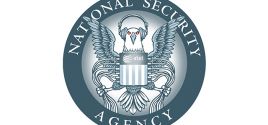Americans Reject Phone, E-Mail SurveillanceAngus Reid Global ScanSep. 10, 2006 |
Popular 
John Hagee Cheers Israel-Iran Battle as 'Gog and Magog War,' Will Lobby Congress Not to Deescalate

Right-Wing Media See Traffic Plummet in Wake of Algorithm Changes by Facebook, Google

Patriot ACT on Steroids: FISA Bill Forces 'An Enormous Range' of Businesses to Act as NSA Spies

Congress Introduces ADL-Backed 'Countering Antisemitism Act' to Police Online Speech

Israel to Extend Water Agreement With Jordan 'For Helping Shoot Down Iranian Drones'
 Many adults in the United States are not willing to allow government agencies to regularly monitor their telephone calls and e-mails, according to a poll by CBS News. 59 per cent of respondents reject the idea. Last December, U.S. president George W. Bush defended a secret domestic electronic surveillance program that includes the wiretapping of the telephone calls and e-mails of Americans suspected of having terrorist ties. The president’s remarks came in response to media reports that, since 2002, Bush has authorized the National Security Agency (NSA) to operate this program without any judicial oversight. In May, USA Today reported that the NSA program includes a database with tens of millions of phone call records. Bush defended the activities, saying, "We’re not mining or trolling through the personal lives of millions of innocent Americans. Our efforts are focused on links to al-Qaeda and their known affiliates. So far we’ve been very successful in preventing another attack on our soil." 68 per cent of respondents think Americans will have to give up some of their personal freedoms in order to make the country safe from terrorist attacks. Last week, U.S. District judge Garr M. King became the third magistrate to rule against the dismissal of a lawsuit challenging the NSA program. King said the federal government has revealed "enough information publicly" about the case to allow the plaintiffs to go forward. Polling Data In order to reduce the threat of terrorism, would you be willing or not willing to allow government agencies to monitor the telephone calls and e-mails of ordinary Americans on a regular basis? |



